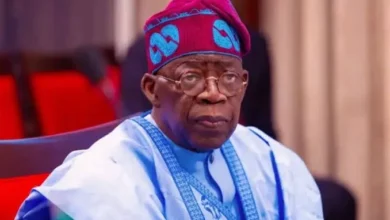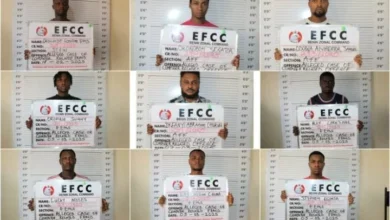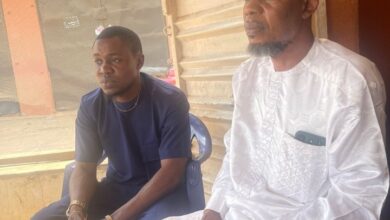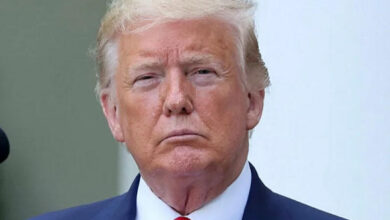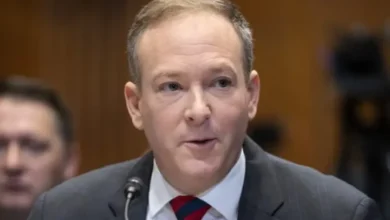World Bank set to approve Nigeria’s $632 million loan

The World Bank approved $632 million in fresh loans for Nigeria this week to bolster nutrition and education programs nationwide.
These funds target vulnerable children through school meal initiatives and teacher training, aiming to combat malnutrition and illiteracy in underserved communities.
However, the loans arrive amid rising concerns over Nigeria’s $17.32 billion World Bank debt, now 39% of its total external obligations.
Critics warn that unchecked borrowing risks deepening fiscal strain, especially as debt servicing costs hit $5.47 billion since 2023.
Finance Minister Wale Edun defended the loans, stressing their focus on “human capital development.”
He reiterated plans to prioritize revenue reforms over commercial borrowing, citing recent subsidy removals and tariff hikes.
Yet experts question the strategy, noting delayed disbursements and graft scandals plaguing past World Bank projects.
Only $315 million of an $800 million 2021 social safety net loan reached beneficiaries, with investigations implicating former ministers.
Development economist Dr. Aliyu Ilias urged caution, arguing Nigeria’s borrowing has outpaced its repayment capacity.
“Loans should complement domestic revenue, not replace it,” he said, referencing stalled job creation and infrastructure plans.
The latest approvals include $552 million for basic education upgrades, targeting 20 million out-of-school children. Another $80 million will expand nutrition clinics in regions battling severe food insecurity.
Meanwhile, a $500 million loan approved last Friday aims to strengthen small businesses and farming cooperatives. Officials claim these projects will cushion inflation’s impact, though skeptics cite poor track records in fund utilization.
President Bola Tinubu’s administration has secured $9.25 billion in World Bank loans since 2023, focusing on power, healthcare, and digital infrastructure. Plans for 2025 include six additional loans worth $2.23 billion.
Nigerian Economic Summit Group CEO Dr. Tayo Aduloju called for stricter oversight, urging lawmakers to audit existing projects before approving new debt.
“Transparency determines whether loans uplift or cripple economies,” he emphasized during a Abuja panel discussion.
Civil society groups echoed these concerns, demanding real-time expenditure tracking and community-led monitoring.
Activists fear vulnerable populations—particularly women and rural families—remain excluded from program benefits despite soaring needs.
Central Bank data reveals foreign reserves dipped to $32 billion last month, complicating debt repayment efforts.
The naira’s instability further strains import-dependent sectors, from pharmaceuticals to agricultural equipment.
Teachers’ unions cautiously welcomed the education loan, stressing that prior funding gaps left classrooms overcrowded and understaffed. “These funds must reach grassroots schools, not vanish in bureaucracy,” said National Union of Teachers president Audu Amba.
Nutrition advocates highlighted alarming stunting rates, with 37% of Nigerian children under five malnourished. The new loan aims to scale up vitamin supplements and maternal health education in 12 high-risk states.
Opposition lawmakers criticized the borrowing spree, accusing the government of mortgaging future generations’ stability. Senate Minority Leader Abba Moro demanded urgent hearings on loan terms, warning against “predatory” interest rates.
Globally, the World Bank faces scrutiny over its lending practices, with critics arguing loans often prioritize lender interests over local needs. Nigeria’s case tests reforms championed by bank president Ajay Banga to streamline approvals and enhance accountability.
As inflation nears 34%, families like Hajia Amina’s in Kano struggle to afford meals. “If these loans bring cheaper food and schools, we’ll celebrate,” she said. “But past promises rarely reach us.”
Farmers in Benue State expressed mixed feelings, recalling unfulfilled pledges from earlier agricultural loans. “We need seeds and irrigation, not paperwork,” said cooperative leader Terfa Kuhe, urging direct community engagement.
The Debt Management Office maintains that World Bank loans remain concessional, with longer tenures and lower rates than commercial alternatives. However, repayment schedules clash with urgent budget needs for healthcare and security.
Youth groups implored the government to invest loan proceeds in tech hubs and vocational centers, citing Nigeria’s 41% unemployment rate. “Education means little without job pathways,” said Lagos-based activist Chioma Nwosu.
With $16.84 billion owed to the World Bank’s IDA arm, Nigeria ranks among Africa’s top borrowers. Analysts stress that avoiding debt distress requires boosting exports and slashing wasteful spending.
As debates rage, mothers like Fatima Dauda in Katsina await tangible changes. “My children deserve full stomachs and classrooms,” she said. “Leaders must turn these millions into meals and books—not more empty words.”
Post Views: 13

